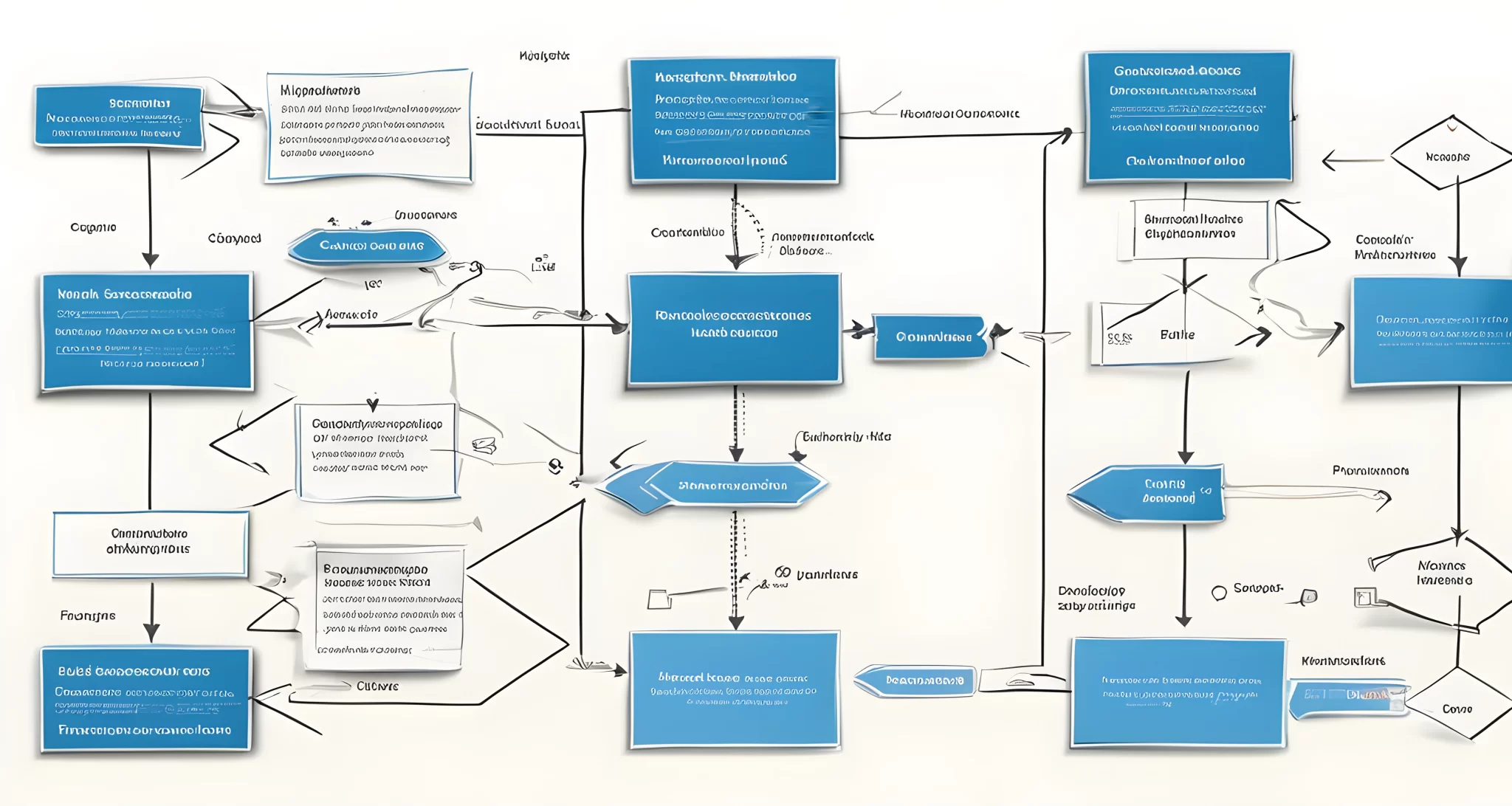The Importance of Scaling a Startup
Scaling a startup is a crucial step in the growth and success of any business. It involves expanding the business to maximize revenue, market share, and profitability. This process requires careful planning, a scalable business model, and the ability to adapt to changing circumstances.
One of the key factors for successful scaling is prioritizing delivering excellent service. As startups expand, it’s important to maintain a high level of customer satisfaction and ensure that the quality of service does not diminish. By enhancing the customer experience, startups can build a loyal customer base and attract new customers through positive word-of-mouth.
Another essential aspect of scaling a startup is deploying successful promotional activities. Startups need to continuously evaluate and improve their marketing strategies to reach a wider audience and increase brand awareness. Utilizing digital marketing techniques such as social media advertising, content marketing, and search engine optimization can help startups maximize their promotional efforts.
In addition, maintaining a scalable business model is essential for successful scaling. Startups should focus on creating a solid foundation that can support growth without compromising efficiency or sustainability. This involves continuously evaluating the current business model and making necessary adjustments to accommodate expansion.
Furthermore, it’s important to consider both horizontal and vertical scaling. Horizontal scaling involves expanding into new markets and diversifying products or services Maximizing startup possibilities. This allows startups to reach new customers and increase their market share. On the other hand, vertical scaling involves upgrading existing hardware to sustain increased levels of traffic and workload without complicating matters with additional servers or resources.
In conclusion, scaling a startup is a critical process that requires careful planning and execution. By prioritizing excellent service, deploying successful promotional activities, maintaining a scalable business model, and considering both horizontal and vertical scaling, startups can position themselves for long-term success in the competitive business landscape.
Key Factors for Successful Scaling
- Delivering excellent service
- Enhancing the customer experience
- Deploying successful promotional activities
Strategies for Successful Startup Scaling
- Continuous evaluation and improvement
- Horizontal and vertical scaling considerations
Maintaining a Scalable Business Model

Key Factors for Successful Scaling
When it comes to scaling a startup successfully, there are several key factors that entrepreneurs need to consider. Timing is crucial, and it’s important to ensure that the business is meeting and exceeding its targets before attempting to scale. This includes having a solid customer base, sustainable revenue streams, and a proven product or service.
Setting long-term business goals is also essential for successful scaling. These goals should be ambitious and challenging, providing a clear direction for the company’s growth. Additionally, having a supply that is insufficient for the demand can indicate that it’s time to scale up operations.
Once a startup is ready to scale, there are several steps that can help ensure success. Creating a detailed business plan that outlines the strategy for growth and expansion is crucial. This plan should address potential challenges and provide clear milestones for measuring progress.
Building a strong team is also essential for successful scaling. Hiring talented individuals who are committed to the company’s vision can help drive growth and innovation. Reducing costs and optimizing the product or service for buyers can also help streamline operations and improve the bottom line.
Continuous measurement and optimization of performance are key to successful scaling. This involves regularly reviewing key performance indicators (KPIs) and making adjustments as needed to ensure that the business is on track to meet its growth targets.
Overall, successful scaling requires careful planning, strategic decision-making, and a willingness to adapt to changing market conditions. By considering these key factors and implementing effective strategies, startups can position themselves for sustainable growth and long-term success.
For more information on overcoming funding challenges for startups, check out Startups’ Financial Hurdles.

Strategies for Successful Startup Scaling
Once a startup is ready to scale, it should create a business plan to outline its growth strategy and financial projections. This plan will serve as a roadmap for the company’s expansion and help align the team towards common goals. Building a team with the right skill sets and expertise is crucial for successful scaling. Hiring individuals who are passionate about the company’s mission and vision, and who possess the necessary skills to drive growth, can make all the difference in the world.
Reducing costs is another important strategy for startup scaling. This can involve renegotiating contracts with vendors, streamlining internal processes, and finding innovative ways to cut unnecessary expenses without sacrificing quality. Optimizing the product for buyers is also key. By understanding customer needs and preferences, startups can tailor their products or services to better meet market demand.
Continuous measurement and optimization of performance are essential for sustaining growth. Utilizing tools like lean startup, agile, and OKR can help startups assess their progress, identify areas for improvement, and make data-driven decisions. Startups should also maintain a scalable business model that can adapt to changing market conditions and customer demands.
Attracting and retaining top talent is critical for scaling success. A strong team can drive innovation, execute strategies effectively, and fuel growth. Communicating effectively with the team is equally important. Transparency, clear goals, and open lines of communication can foster a positive work environment and keep everyone aligned towards common objectives.
In conclusion, scaling a startup is a continuous process that requires constant evaluation and improvement. By following these strategies, startups can position themselves for sustainable growth and success in the long run.
For more insights on addressing the challenges of scaling up startups, check out Startups Scaling Up Solutions.

Maintaining a Scalable Business Model
When it comes to scaling a startup, it is crucial to not only focus on growth but also to maintain a scalable business model that can support that growth. A scalable business model is essential for long-term success and sustainability. Here are some key strategies for maintaining a scalable business model:
Creating a Business Plan
Before scaling your startup, it’s important to create a solid business plan that outlines your growth strategy, target market, financial projections, and operational plan. This plan should also include potential challenges and how you plan to overcome them. A well-thought-out business plan will provide a roadmap for scaling your startup effectively.
Building a Strong Team
As your startup grows, it’s essential to build a team that is capable of supporting that growth. Hiring the right talent and creating a positive work culture are essential for maintaining a scalable business model. A strong team will help drive innovation, productivity, and overall success.
Reducing Costs
Maintaining a scalable business model also involves keeping costs in check. As your startup grows, it’s important to continuously evaluate expenses and look for ways to reduce costs without sacrificing quality. This could involve renegotiating contracts with suppliers, streamlining processes, or implementing cost-saving technologies.
Optimizing the Product for Buyers
To support growth, it’s crucial to continuously optimize your product or service based on customer feedback and market trends. This might involve adding new features, improving user experience, or expanding your product line to meet the evolving needs of your customers.
Continuous Measurement and Optimization
Lastly, maintaining a scalable business model requires continuous measurement and optimization of performance. This involves tracking key performance indicators (KPIs), analyzing data, and making adjustments as needed to ensure continued growth and success.
By implementing these strategies, startups can effectively maintain a scalable business model while supporting their growth efforts. It’s important to remember that scaling a startup is not just about growing quickly but also about building a strong foundation for long-term success.
For more information on overcoming challenges in startups, check out Startup challenges conquered for valuable insights.
In conclusion, maintaining a scalable business model is crucial for the long-term success of any startup. By following these strategies, startups can ensure that they are well-positioned for sustainable growth and profitability.

Continuous Evaluation and Improvement
Scaling a startup is not a one-time event, but rather a continuous process that requires constant evaluation and improvement. It’s essential to measure and optimize performance using tools like lean startup, agile, and OKR.
Measuring Performance
Continuous evaluation involves regularly tracking key performance indicators (KPIs) to understand how the startup is progressing. This can include metrics such as customer acquisition cost, customer lifetime value, churn rate, and revenue growth. By regularly measuring these KPIs, startups can identify areas for improvement and make data-driven decisions to drive growth.
Optimizing Performance
Once performance has been measured, startups can then focus on optimizing their operations. This can involve using lean startup methodologies to test and iterate on new ideas quickly, allowing for rapid innovation and improvement. Agile methodologies can also be used to streamline processes and respond to changes in the market more effectively.
Setting Objectives and Key Results (OKR)
Setting clear objectives and key results (OKRs) is another important aspect of continuous evaluation and improvement. By defining ambitious yet achievable goals, startups can align their team’s efforts towards a common vision and measure progress in a transparent manner. This can help maintain focus and drive continuous improvement throughout the organization.
In conclusion, continuous evaluation and improvement are essential for the successful scaling of a startup. By regularly measuring performance, optimizing operations, and setting clear objectives, startups can ensure that they are on track for sustainable growth. To learn more about effective management strategies for startups, check out Startup Management Techniques.
FAQ
What is scaling a startup?
Scaling a startup involves expanding a business to maximize revenue, market share, and profitability. it requires careful planning, a scalable business model, and the ability to adapt to changing circumstances.
When should a startup consider scaling?
Startups should consider scaling when they have met and exceeded business targets, have long-term challenging goals, and find that their supply is insufficient for the demand.
What are some essential strategies for scaling a startup?
To successfully scale a startup, essential strategies include creating a business plan, building a team, reducing costs, optimizing the product for buyers, and continuously measuring and optimizing performance.
What are some tools that can help with scaling a startup?
Tools like lean startup, agile, and okr can help with measuring and optimizing performance during the process of scaling a startup.
